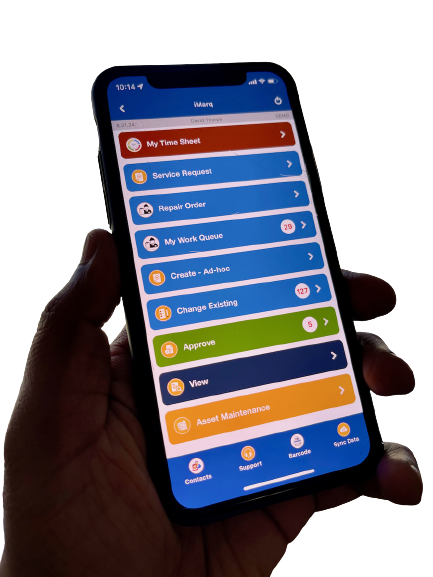In this era of AI, IoT, and automation, it is becoming increasingly clear that digital asset management is not just a buzzword but a crucial tool for success. From streamlining workflows to reducing operational costs, the benefits of digitizing maintenance are simply too significant to ignore.
Oil & Gas companies need to digitize their asset management processes not just to stay ahead of the curve, but also as a means to gain competitive advantage. Digitization ensures that their assets are maintained regularly and diligently, and potential issues are addressed proactively and cost-effectively. Digitization also helps companies gain better insights on asset performance and identify gaps in their maintenance process more effectively. Finally, as a matter of simple operational efficiency, when Oil & Gas businesses operate in remote areas, digitization is the only means to ensure efficiency, auditability, and compliance – all of which are challenges when processes are paper-driven.
Hurdles in Asset Management
The Oil & Gas industry is subject to a wide range of regulations including HSE, zoning, and land-use regulations. Staying compliant can be challenging, particularly where businesses operate across multiple jurisdictions. Their assets including pipelines and storage tanks, have a finite lifespan and require regular maintenance to prolong their usability and functionality. Furthermore, the assets are part of a complex distributed system often in remote locations. The challenges of logistics and supply chain are amplified for companies with paper-heavy and manual maintenance processes
Another challenge that oil and gas companies face is tracking inventory. Once it has been checked out of the stores for use in the field, there’s no way to monitor its consumption against specific jobs or assets—and that lack of visibility also impacts safety & compliance as well as related reporting.
How does digitization add value to an industry with complex maintenance needs?
Digitization eliminates the manual aspect of maintaining records and centralizes data in one location, providing the flexibility to capture more information. Additionally, companies will see a significant decrease in their dependency on paper. Regulatory documents can be made available to teams and crew on demand. and automated scheduling reduces the burden on crew to manually monitor and execute regulatory or routine maintenance.
Real-time monitoring of equipment allows companies to implement preventive and predictive maintenance measures. A digital maintenance solution gives companies a comprehensive overview of their assets. This also enables better resource allocation, reduced downtime, and increased productivity across the board.
Additionally, the use of cloud-mobile technology creates an electronic trail for transactions – including the chain of custody – through the use of mobile technology. This implies that any inventory or stock that was earlier tracked on paper is now available to the stakeholders of the maintenance process on their mobile devices.
Impact of Digital Asset Management
Digital Asset Management simplifies the maintenance process. Workflows within the maintenance process are made easier and more transparent. With all the data in one place, crew no longer have to follow long paper trails or manually track asset status. Forms, checklists, and audit templates get digitized and can be tagged to relevant assets. Approvals are immediate and asset history is no longer a process of scouring through paper records. Everything is available digitally when it’s needed.
iMarq has been adopted by scores of companies looking to digitize maintenance and thereby improve asset management. It is an ideal solution to manage a distributed network across multiple locations including remote ones. In fact, our customers have reported a 20% increase in labor efficiency.
Talk to us today about how we can help you and your crew address the challenges you face in maintaining your assets.





